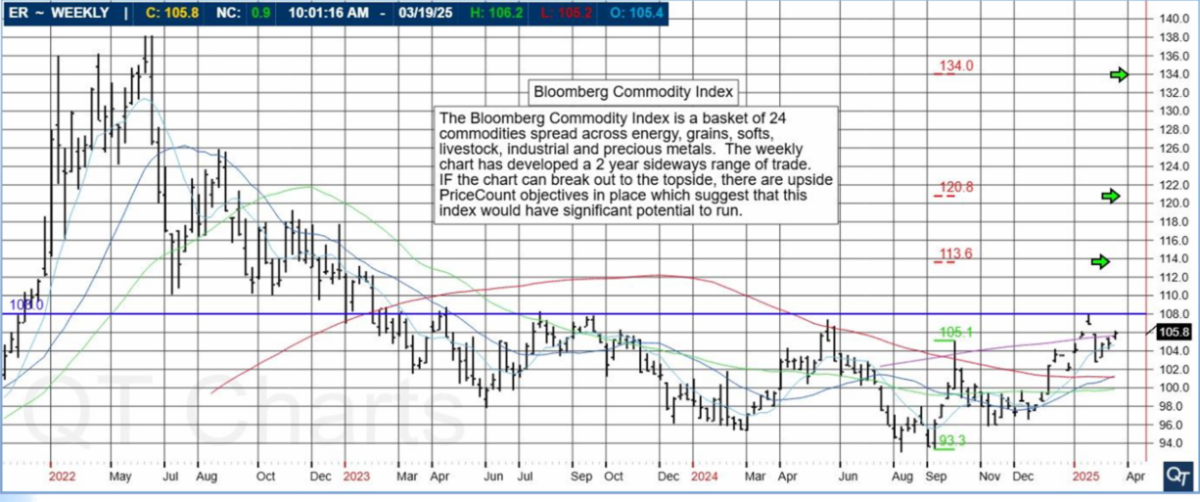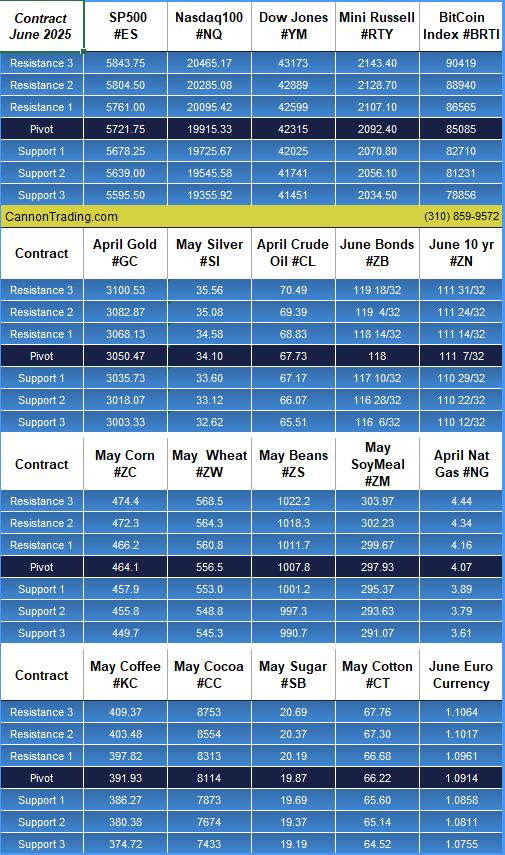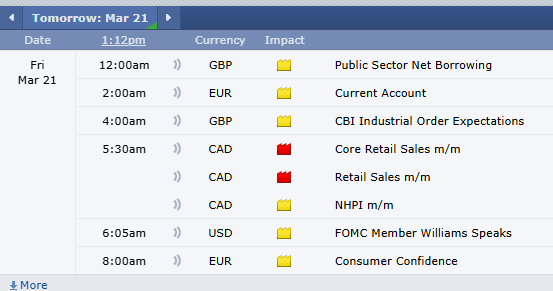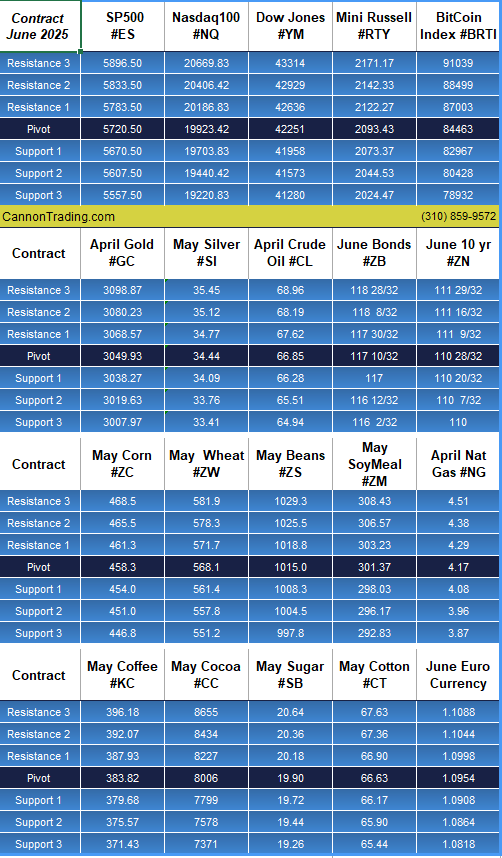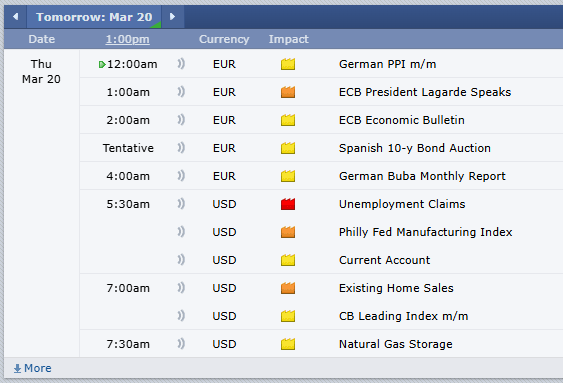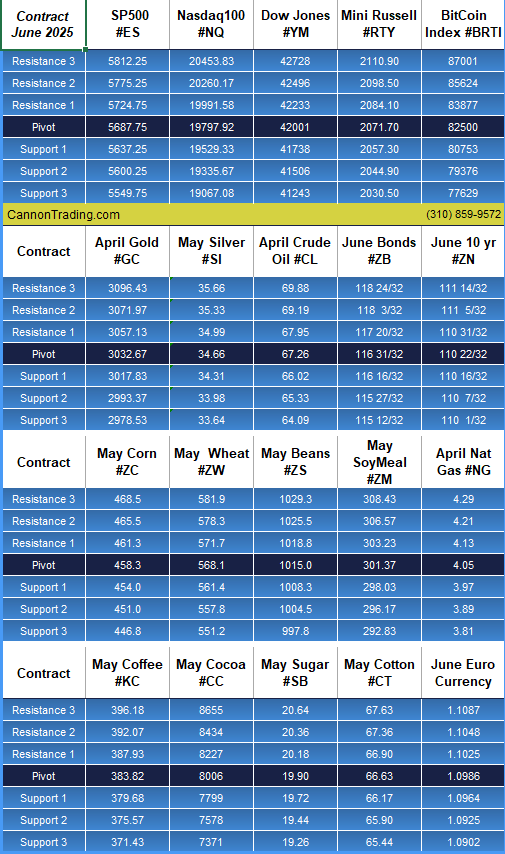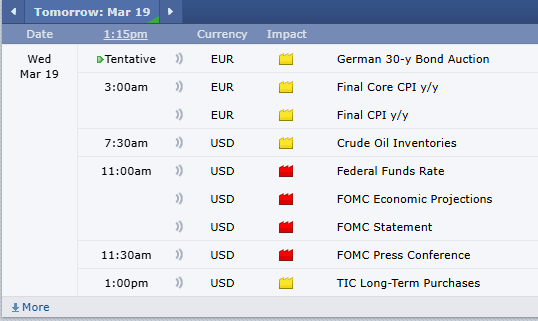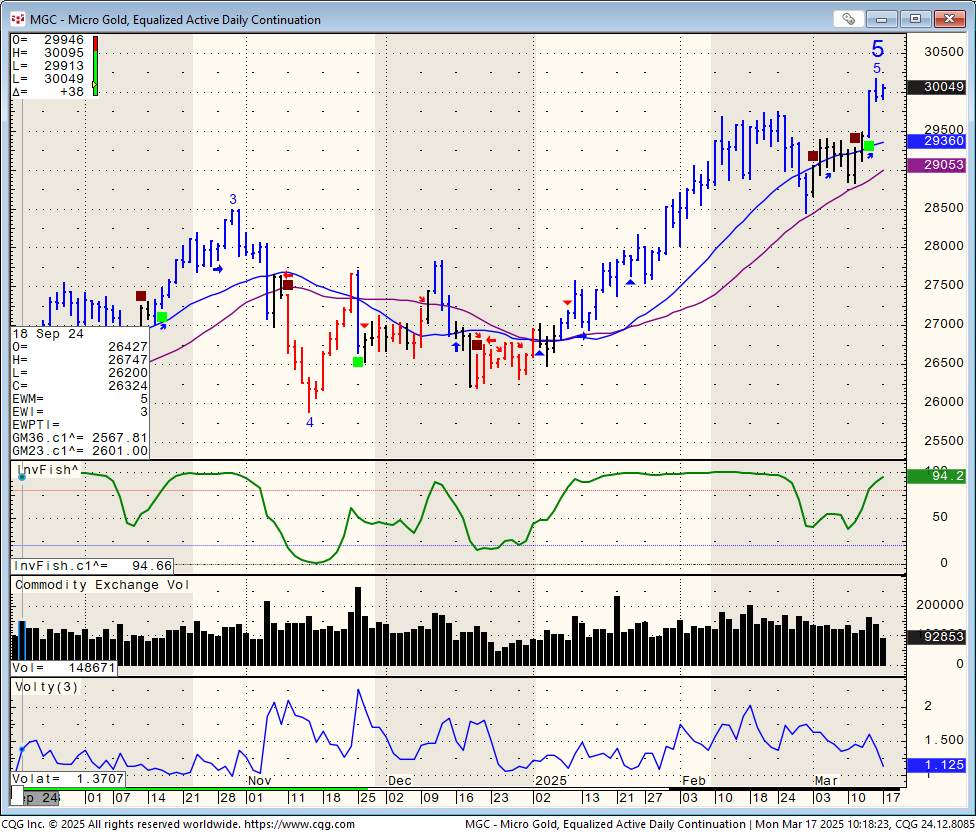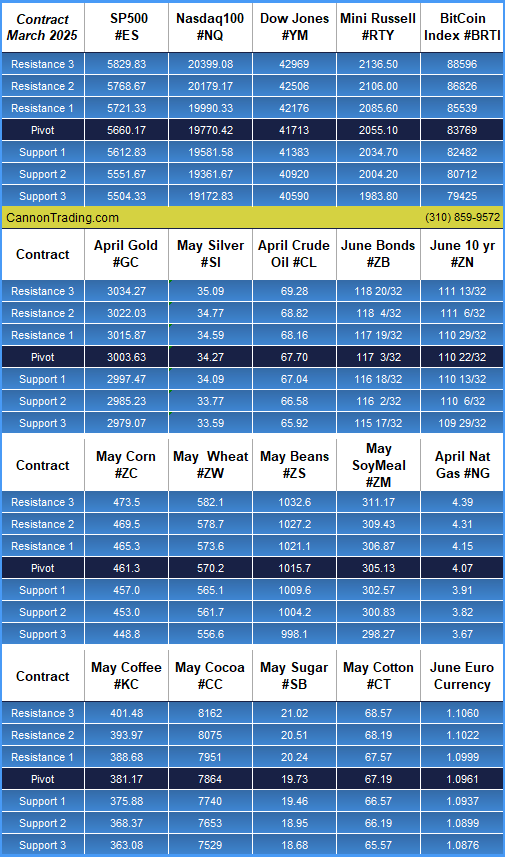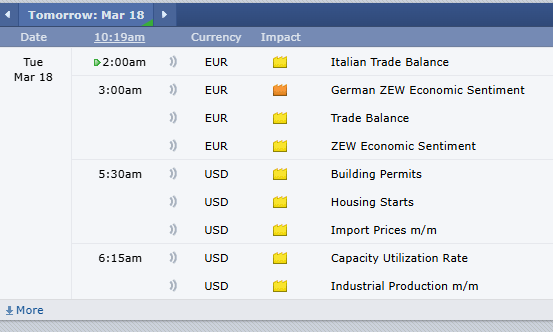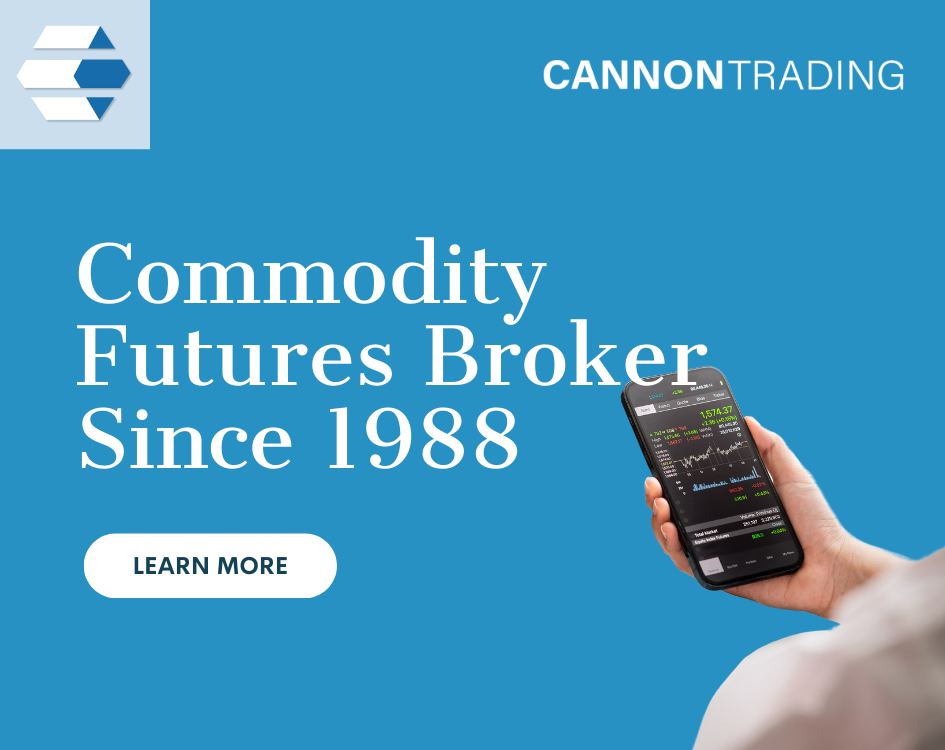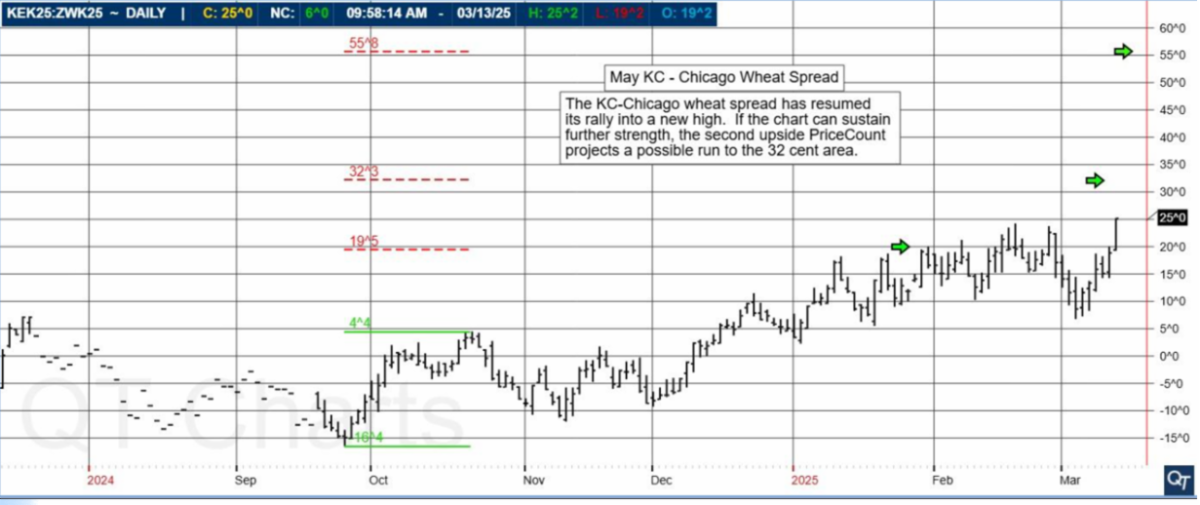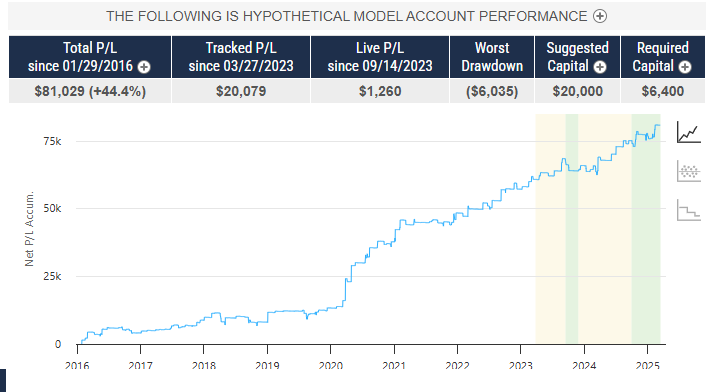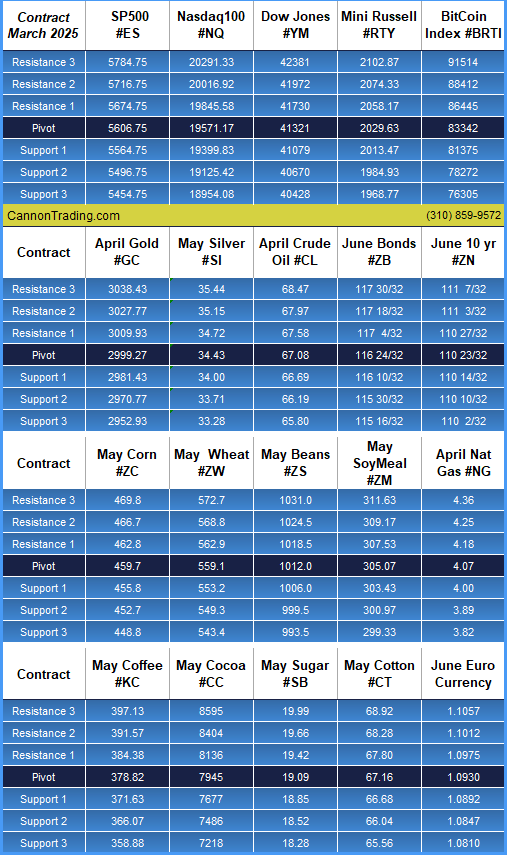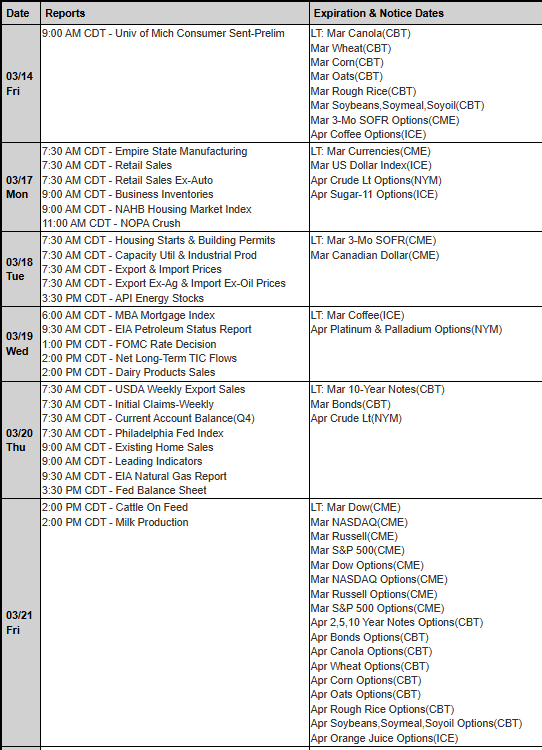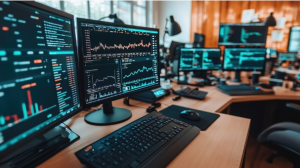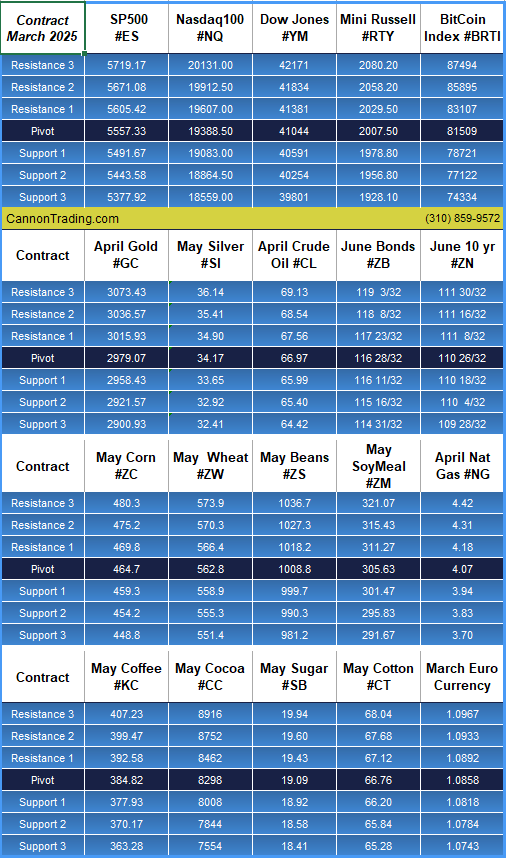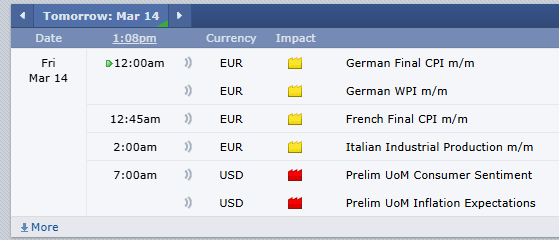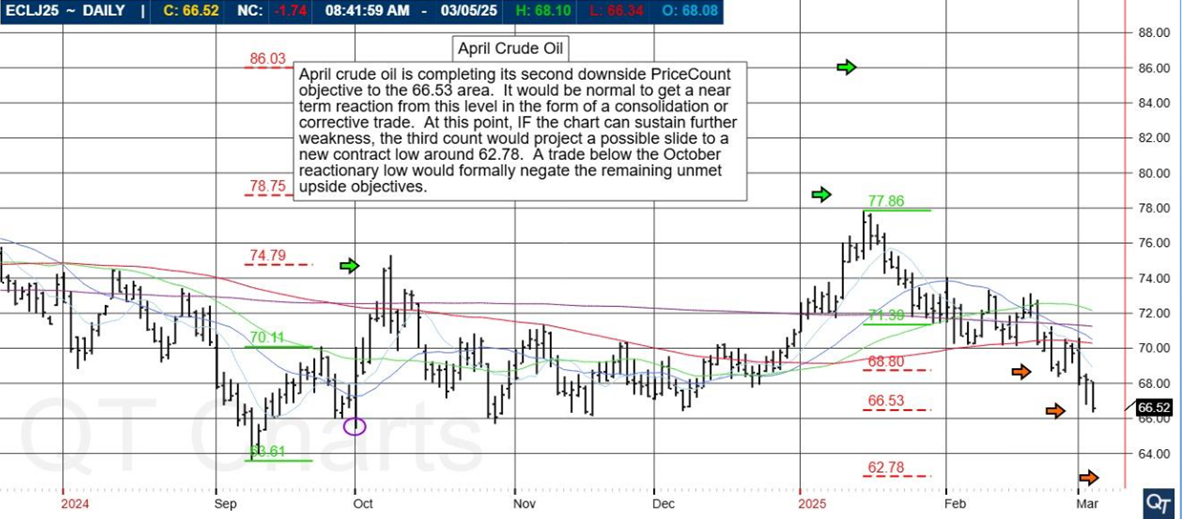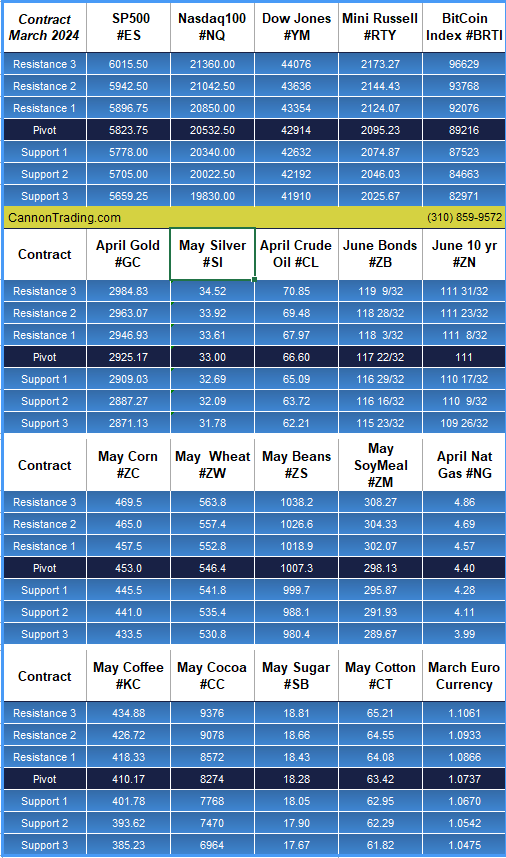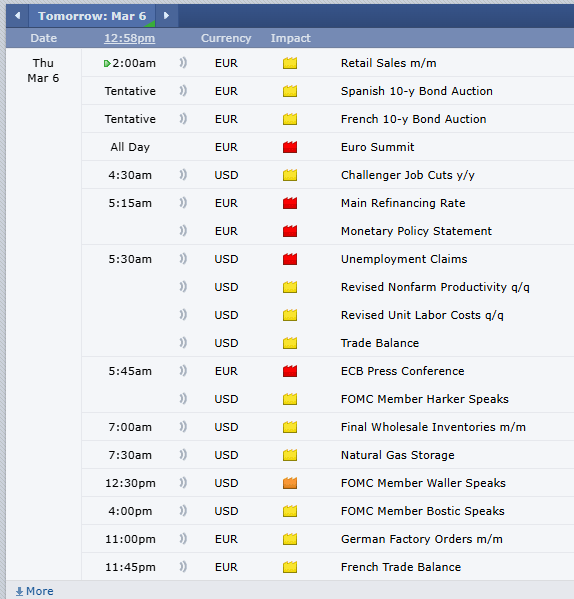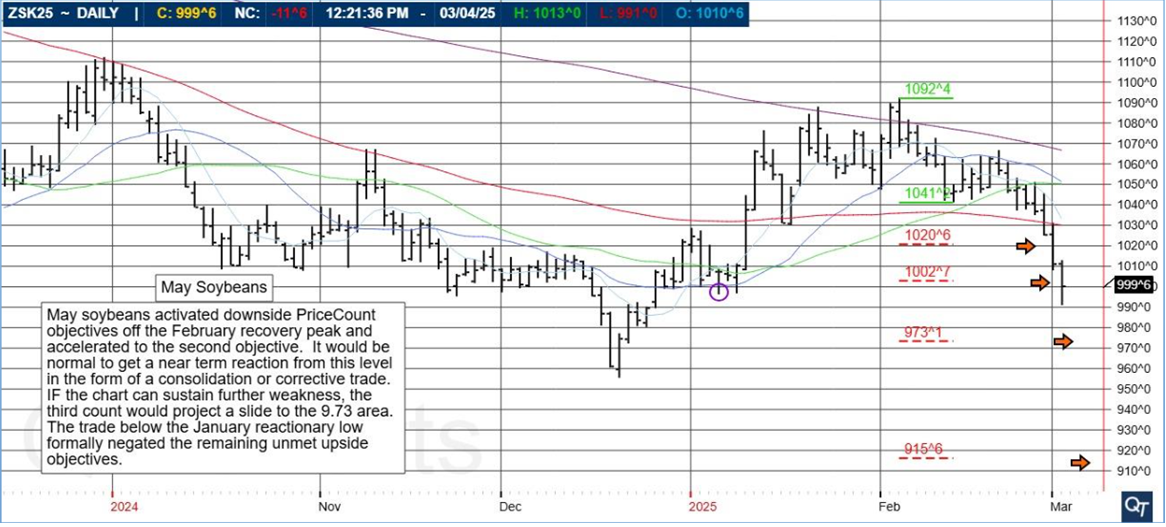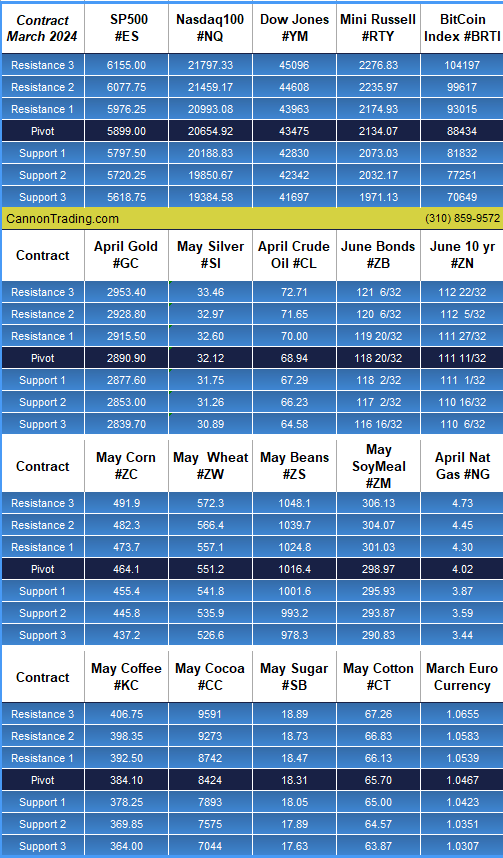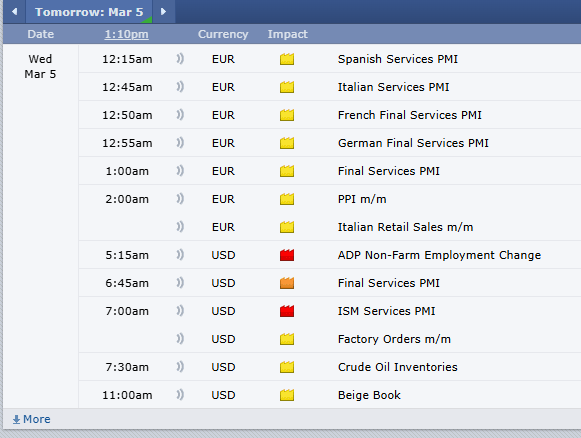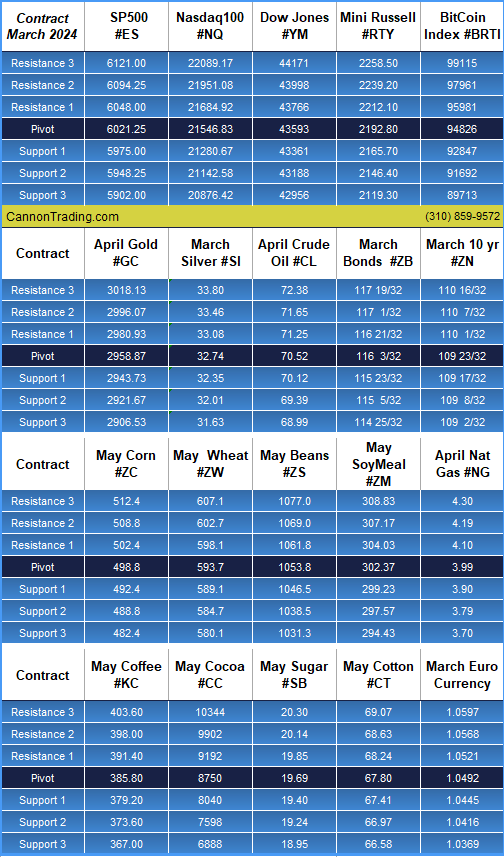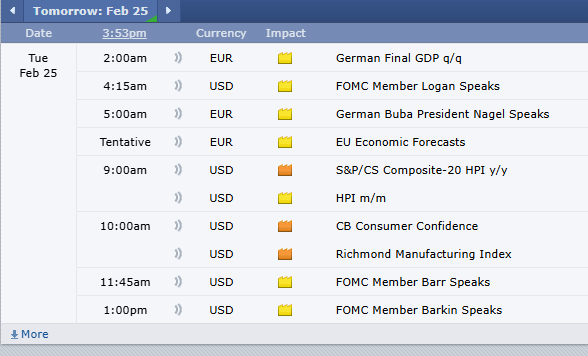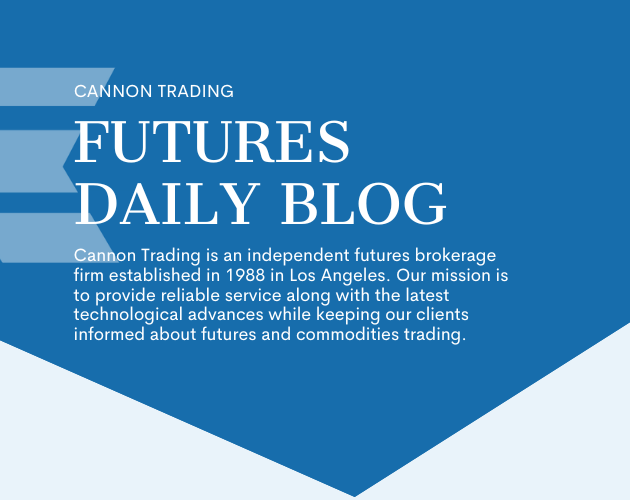
Turbulence in Equities & Commodities
Gold & Wheat, Emini S&P COTD
Buckle your seatbelts, Turbulence in equities and Commodities
By John Thorpe, Senior Broker
Please speak with your broker about ways that you may not be aware of to assist you with your risk management plans. They may surprise you with the creative solutions you may find more efficient than simple stop orders or the old “hand on the mouse blow yourself out” strategy.
Wheat

Why the turbulence in the Grain markets? USDA prospective plantings report was revealed, although largely in line with expectations, it’s a surprise that planted acres are down for soybeans, wheat and 12% lower for cotton while farmers are switching out of beans and planting corn instead, as seed and fertilizer costs are lower for these compliments in production.
Wheat for all winter varieties planted is the second smallest crop since records have been kept from 1919. The weather market begins now in earnest for the Wheat complex for the next 8 weeks.
Market volatility is here to stay for the foreseeable future
Choose your opportunities wisely.
What in the world was going on with equity prices today, first the big dump was attributed to Liberation Tariff Day, coined by the media, only to see the markets stage a brave comeback against all talking point odds! Was this merely a technical correction? Or a combination of oversold and some positive tariff news?
Mini Dow’s range today? 786 points $value? = $3930.00 from hi to lo
Mini S & P’s range today? 111.25 points $ Value? = $5562.50 from hi to lo
Mini Nasdaq’s range today? 439 points $value? = 8785.00 from hi to lo
How Gold is your Portfolio?
Gold

All-time highs in gold today. 3162.00 per troy gold ounce currently trading @ 3155.00 + over $40.00 per gold oz. yet the industrial metals were negative today, Dr. Copper and Silver. We offer all exchange traded contract sizes, from 1 oz to 100 ounces.
Secondary tariffs on Russian oil talk had the Crude oil futures up over $2 per bbl safely above the $70.00 /bbl price level.
Tomorrow:
Econ Data: Redbook, ISM Mfg. Final, JOLTS, Dallas Fed.
FED Speak: Quiet
Earnings: Quiet
Tariff news: Anything goes!
June Emini S&P
The June Emini S&P corrected after it fompleted its second downside PriceCount objective earlier this month. Now, the chart has resumed its slide into a new low which, if sustained, would project a run to the third count in the 5371 area.
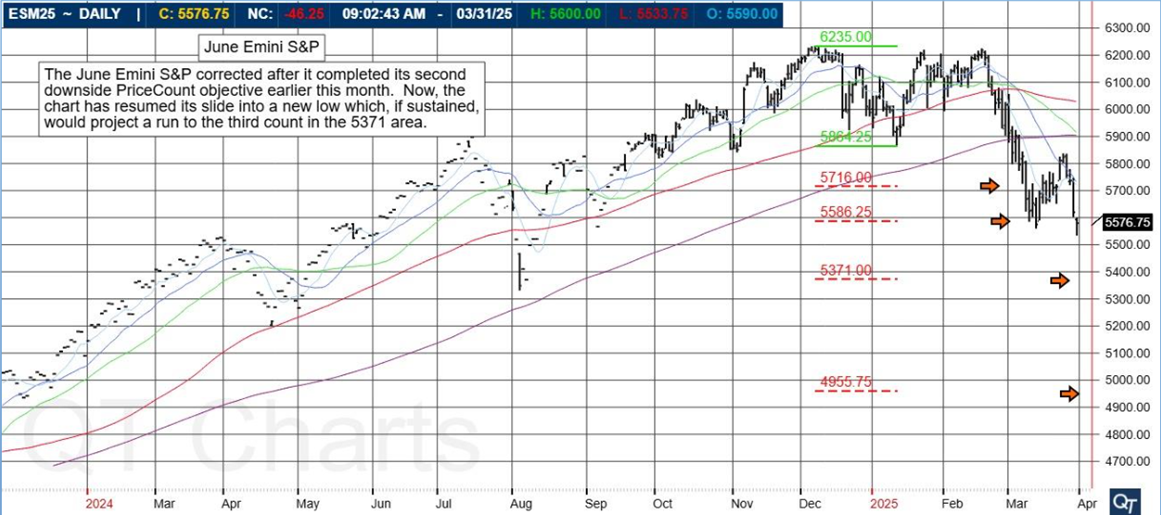
Emini
Chart above is provided by QT Market Center, A Swiss army knife charting package that’s not just for Hedgers, Cooperatives and Farmers alike but also for Spread traders, Swing traders and shorter time frame application for intraday traders with a unique proprietary indicator that can be applied to your specific trading needs.
Free Trial Available
The PriceCount study is a tool that can help to project the distance of a move in price. The counts are not intended to be an ‘exact’ science but rather offer a target area for the four objectives which are based off the first leg of a move with each subsequent count having a smaller percentage of being achieved.
It is normal for the chart to react by correcting or consolidating at an objective and then either resuming its move or reversing trend. Best utilized in conjunction with other technical tools, PriceCounts offer one more way to analyze charts and help to manage your positions and risk.
Learn more at www.qtchartoftheday.com
Trading in futures, options, securities, derivatives or OTC products entails significant risks which must be understood prior to trading and may not be appropriate for all investors. Past performance of actual trades or strategies is not necessarily indicative of future results.
Daily Levels for April 1st, 2025
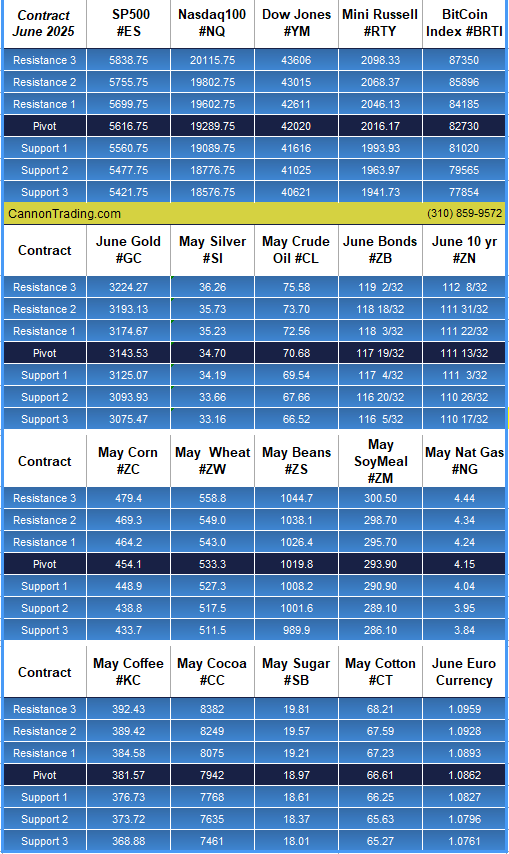
Want to feature our updated trading levels on your website? Simply paste a small code, and they’ll update automatically every day!
Click here for quick and easy instructions.

Economic Reports
provided by: ForexFactory.com
All times are Eastern Time (New York)
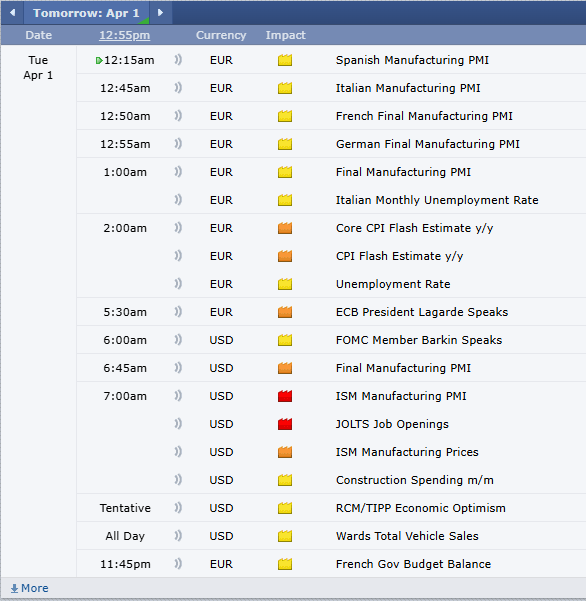
|
||||||||||||||||||||||||||||
|
||||||||||||||||||||||||||||
|



